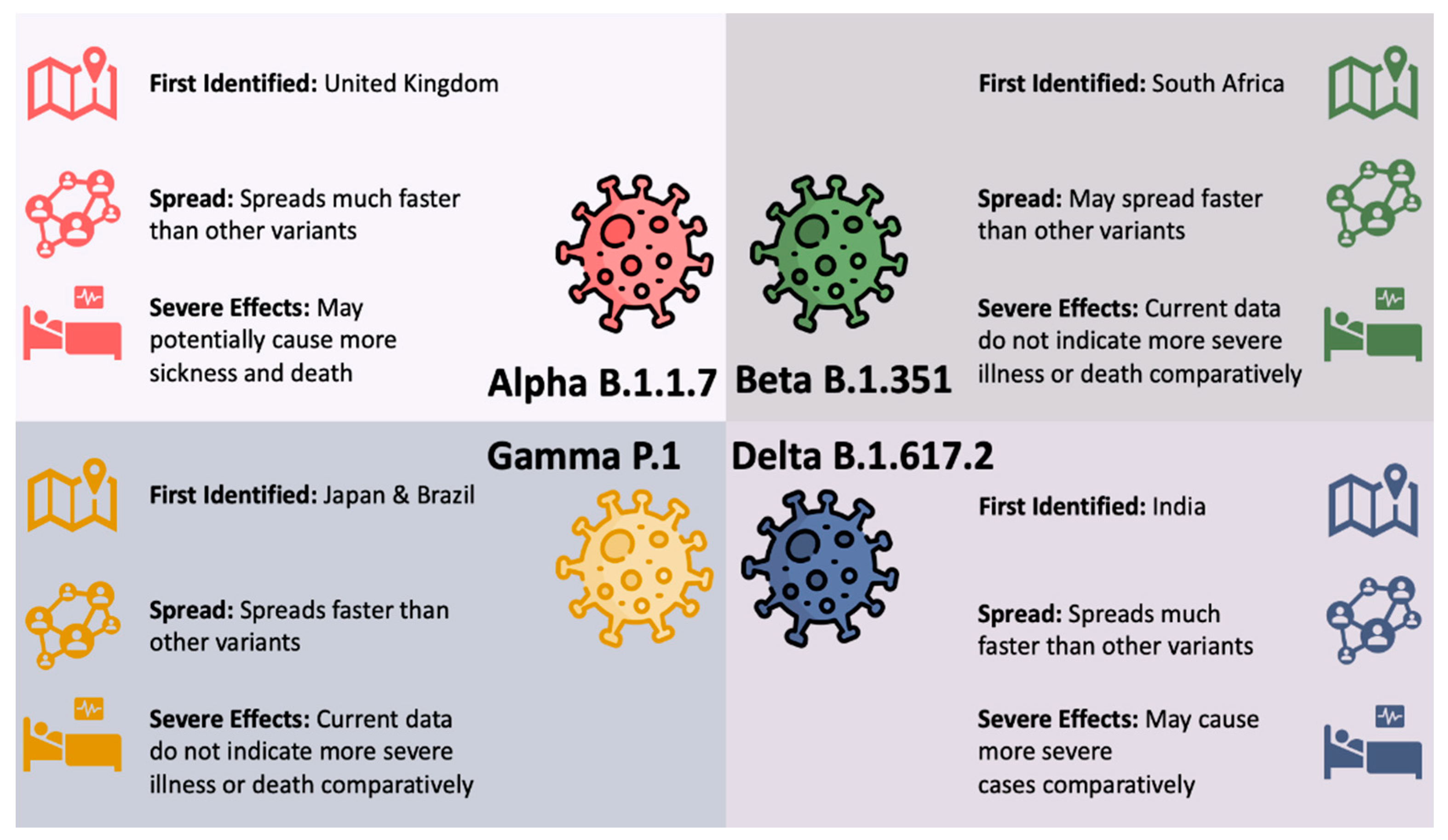Variants and their Impact

The COVID-19 pandemic has been marked by the emergence of several variants of the SARS-CoV-2 virus. These variants have distinct characteristics, geographical distributions, and potential implications for public health.
Key Characteristics and Geographical Distribution
The most notable variants of concern include Alpha (B.1.1.7), Beta (B.1.351), Gamma (P.1), and Delta (B.1.617.2). Each variant has unique mutations that affect its transmissibility, virulence, and immune evasion capabilities.
| Variant | Mutations | Known Effects | Geographical Distribution |
|---|---|---|---|
| Alpha | N501Y, D614G | Increased transmissibility | Global |
| Beta | E484K, K417N | Reduced antibody neutralization, increased transmissibility | South Africa, Europe |
| Gamma | N501Y, E484K | Reduced antibody neutralization, increased transmissibility | Brazil, Japan |
| Delta | L452R, P681R | Increased transmissibility, increased virulence | India, Global |
Symptoms and Clinical Manifestations

Covid variants symptoms – COVID-19 variants exhibit a range of symptoms, some of which are common to the original strain while others are unique to specific variants.
The most prevalent symptoms include fever, cough, fatigue, shortness of breath, and loss of taste or smell. However, variants like Alpha and Delta have shown an increased incidence of gastrointestinal symptoms such as nausea, vomiting, and diarrhea.
Common Symptoms
- Fever
- Cough
- Fatigue
- Shortness of breath
- Loss of taste or smell
Variant-Specific Symptoms
- Alpha Variant: Increased gastrointestinal symptoms (nausea, vomiting, diarrhea)
- Delta Variant: Increased transmissibility, severe illness in younger individuals
- Omicron Variant: Milder symptoms, shorter incubation period
Diagnostic and Management Considerations: Covid Variants Symptoms

Effective diagnosis and management of COVID-19 variants are crucial for containing the spread of the virus and providing appropriate care to patients. Here we explore the diagnostic tests and treatment protocols employed for different variants.
Diagnostic Tests
The diagnosis of COVID-19 variants primarily relies on molecular tests, such as:
- Reverse transcription polymerase chain reaction (RT-PCR)
- Nucleic acid amplification tests (NAATs)
- Antigen tests
These tests detect the presence of viral RNA or antigens specific to the variant in question.
Treatment Protocols, Covid variants symptoms
Treatment strategies for COVID-19 variants vary depending on the severity of the infection and the patient’s individual characteristics. Common treatment approaches include:
- Antiviral medications (e.g., remdesivir, molnupiravir)
- Monoclonal antibodies
- Corticosteroids
- Oxygen therapy
- Ventilator support (in severe cases)
The choice of treatment is guided by factors such as the variant’s susceptibility to specific medications and the patient’s underlying health conditions.
Comparative Table
The following table summarizes the diagnostic and management approaches for different COVID-19 variants:
| Variant | Diagnostic Tests | Treatment Protocols |
|---|---|---|
| Alpha | RT-PCR, NAATs | Antivirals, monoclonal antibodies, corticosteroids |
| Beta | RT-PCR, NAATs | Antivirals, monoclonal antibodies, corticosteroids, oxygen therapy |
| Gamma | RT-PCR, NAATs | Antivirals, monoclonal antibodies, corticosteroids |
| Delta | RT-PCR, NAATs | Antivirals, monoclonal antibodies, corticosteroids, oxygen therapy, ventilator support |
| Omicron | RT-PCR, NAATs, antigen tests | Antivirals, monoclonal antibodies, corticosteroids, oxygen therapy |
The new COVID variants are showing a range of symptoms, including fever, cough, and fatigue. These symptoms can be similar to those of other illnesses, making it difficult to diagnose. In some cases, people who are misgendered by flight attendants may experience anxiety, depression, or other mental health issues.
It’s important to be aware of the symptoms of COVID-19 and to seek medical attention if you think you may have been infected. Misgendering flight attendants can have a negative impact on the mental health of transgender people. It’s important to be respectful of people’s gender identities and to use the correct pronouns.
With the ongoing pandemic, new COVID variants have emerged, exhibiting a range of symptoms. One such symptom is a persistent cough. To learn more about these variants and their impact, refer to the comprehensive guide at edwin diaz mets.
The guide provides valuable information on the different strains, their symptoms, and recommended precautions. By staying informed, we can better protect ourselves and our loved ones during these challenging times.